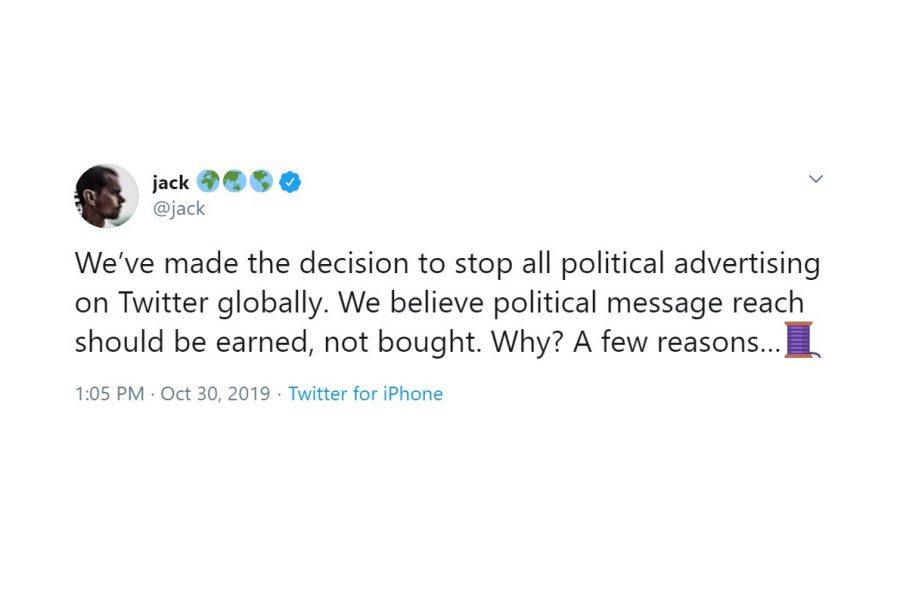
Russia still gets the most mentions about wanting to interfere even more in America’s 2020 elections, but they’re not the only country hoping to jump in on the action. China and Iran are whetting their chops as Donald Trump’s administration has been very lax in attempting to repair the system.
American officials sounding the alarm about foreign efforts to disrupt the 2020 election include multiple countries in that warning. Concerns abound not only about the possible hacking of campaigns but also about the spread of disinformation on social media and potential efforts to breach voting databases and even alter votes.
The anxiety goes beyond the possibility that U.S. adversaries could affect election results: The mere hint of foreign meddling could undermine public confidence in vote tallies, a worrisome possibility in a tight election.
“Unfortunately, it’s not just Russia anymore. In particular, China, Iran, a couple of others, studied what the Russians did in 2016,” said James Lewis, a cybersecurity expert at the Center for Strategic and International Studies in Washington.
U.S. intelligence agencies reported Russian, Chinese and Iranian influence activities targeting last year’s midterms, and a senior FBI official last week singled out Beijing as a particular source of concern. Meanwhile, Microsoft recently reported that Iranian hackers had targeted an unidentified presidential campaign along with government officials, journalists, and prominent expatriate Iranians.
FBI Director Chris Wray told a congressional hearing Wednesday that the FBI does not have evidence that China, Iran or North Korea plan to target election infrastructure in next year’s election, but “that doesn’t mean they’re not looking carefully at what the Russians attempted to do and trying to learn lessons from that.”
“All of those countries in different ways are clearly interested in engaging in malign foreign influence,” he added.
As for Russia, he said, the U.S. expects that they “already have continued to up their game from what they did in 2016. Of course, we’ve upped our game too.”
Any foreign effort to interfere in the 2020 election won’t necessarily mirror Russia’s attack in 2016 when Kremlin-linked military intelligence officers hacked Democratic emails and shared them with WikiLeaks to try to help Republican Donald Trump defeat Democrat Hillary Clinton.
More likely are the social media campaigns, like the Russian-based one that shaped public opinion in the 2016 election and divided Americans on hot-button topics like race and religion.
Facebook, for instance, announced recently that it has removed four networks of fake, state-backed misinformation-spreading accounts based in Russia and Iran. The company said the networks sought to disrupt elections in the U.S., North Africa, and Latin America.
A Senate Intelligence Committee report described Russia’s social media activities in 2016 as a “vastly more complex and strategic assault on the United States than was initially understood.” A recent memo from the FBI and the Department of Homeland Security warned Russia may use social media to exacerbate divisions within political parties during primaries or hack election websites to spread misinformation on voting processes.
Concerns about foreign influence campaigns coincide with stepped-up enforcement of a law requiring the registration with the Justice Department of lobbyists, media organizations and other entities that do the bidding of foreign governments.
Special counsel Robert Mueller exposed through his investigation the unregistered, covert Russian campaign to spread disinformation on social media.
On Wednesday, Facebook announced that it had removed from its site three Russia-based networks that engaged in foreign influence targeting more than a half-dozen African countries. The company said its investigation linked those accounts to a Russian already indicted in Mueller’s investigation in connection with the social media disinformation effort.
The Justice Department is concerned about China undertaking similar activities. Twitter said it has suspended more than 200,000 accounts that it believes were part of a Chinese government influence campaign targeting the protest movement in Hong Kong. The department also required China’s state-owned television network, CGTN, to register under the Foreign Agents Registration Act.
“Make no mistake, China is aggressively pursuing foreign influence operations,” Nikki Floris, an FBI deputy assistant director, said at a recent congressional hearing. “So as we roll into 2020, though Russia was certainly a threat in 2016 (and) 2018, and will continue to be so in 2020, we are also aggressively looking at China as well.”
U.S. officials said the foreign influence campaigns didn’t change midterm vote totals, but there’s no question that concern remains for 2020. Besides the hacking and subsequent release of stolen emails, Russian agents in 2016 searched for vulnerabilities within election systems in all 50 states and breached the election systems of two Florida counties but don’t appear to have done any damage.
America’s adversaries might have a stake in the 2020 vote. Trump, for instance, speaks well of North Korean leader Kim Jong Un while deepening tensions with Iran by withdrawing the U.S. from a nuclear deal. He has also engaged China in a trade war.
But some experts are skeptical that those countries will use hacking to try to boost a particular candidate — or to influence the election at all. Much of their hacking has been tied to more narrow national interests, and Wray said the FBI doesn’t see them as targeting elections directly.
China, for instance, has so far largely used its cyber capabilities for the purposes of espionage and intellectual property theft and to further its goal of challenging the U.S. role as a global economic superpower. The Justice Department in 2014 charged five Chinese military hackers with siphoning secrets from major American corporations.
Iranian hackers have attacked dozens of banks and a small dam outside New York City and, more recently, sought to pilfer sensitive information from hundreds of universities, private companies, and American government agencies.
North Korea tends to focus its efforts on defectors, academics and others with a hostile relationship to the country, said Jung Pak, a Brookings Institution expert. It hacked Sony Pictures Entertainment and released the private emails of its executives in apparent retaliation for a Hollywood comedy that mocked Kim.
“We haven’t really seen politically motivated attacks where they try to sway elections,” said Matt Ha, a research associate at the Foundation for Defense of Democracies. “Right now, their main objective is the summits, the diplomacy, to try to gain as much as they can — gaining a lot for giving up nothing.”
Even as other countries have bolstered their own capabilities, Russia’s own decadeslong interest in American politics makes it the most challenging and realistic adversary, said Lewis, of CSIS.
“They’re politically astute in a way that no other country can match, and that makes them the most formidable opponent,” Lewis said. “They just know us really well.”
Facebook Paying Up For Cambridge Analytica Mess
Facebook has agreed to pay a 500,000-pound ($643,000) fine in a privacy case stemming from the Cambridge Analytica scandal, agreeing to accept the fine without admitting any liability.
Britain’s Information Commissioner Office had leveled the fine after concluding Facebook processed the personal information of users unfairly by exposing it for use by app developers without informed consent.
Facebook was at pains to underline that the ICO had not found that the data had actually been transferred to Cambridge Analytica, which counted U.S. President Donald Trump’s 2016 election campaign among its clients.
Facebook associate general counsel Harry Kinmonth says the company has “made major changes” to the platform since that time and that it is “significantly restricting the information which app developers could access.”
Twitter Pulls Plug On All Political Ads
Twitter is banning all political advertising from its service, saying social media companies give advertisers an unfair advantage in proliferating highly targeted, misleading messages.
“While internet advertising is incredibly powerful and very effective for commercial advertisers, that power brings significant risks to politics, where it can be used to influence votes to affect the lives of millions,” Twitter CEO Jack Dorsey said Wednesday in a series of tweets announcing the new policy.
Facebook has taken fire since it disclosed earlier in October that it will not fact-check ads by politicians or their campaigns, which could allow them to lie freely. CEO Mark Zuckerberg told Congress last week that politicians have the right to free speech on Facebook.
The issue suddenly arose in September when Twitter, along with Facebook and Google, refused to remove a misleading video ad from President Donald Trump’s campaign that targeted former Vice President Joe Biden, a leading Democratic presidential candidate.
In response, Democratic Sen. Elizabeth Warren, another presidential hopeful, ran her own ad on Facebook taking aim at Zuckerberg. The ad falsely claimed that Zuckerberg endorsed President Donald Trump for re-election, acknowledging the deliberate falsehood as necessary to make a point.
Critics have called on Facebook to ban all political ads. These include CNN chief Jeff Zucker, who recently called the company’s policy of allowing lies “absolutely ludicrous” and advised the social media giant to sit out the 2020 election until it can figure out something better.
Google and Facebook did not have immediate comments on Twitter’s policy change.
Montana Gov. Steve Bullock, another Democratic 2020 contender, retweeted Dorsey’s announcement, adding the comment, “Good. Your turn, Facebook.”
Dorsey said the company is recognizing that advertising on social media offers an unfair level of targeting compared to other mediums. It is not about free expression, he asserted.
“This is about paying for reach. And paying to increase the reach of political speech has significant ramifications that today’s democratic infrastructure may not be prepared to handle,” he tweeted. “It’s worth stepping back in order to address.”
Twitter currently only allows certified campaigns and organizations to run political ads for candidates and issues. The latter tend to advocate on broader issues such as climate change, abortion rights, and immigration.
The company said it will make some exceptions, such as allowing ads that encourage voter turnout. It will describe those in a detailed policy it plans to release on Nov. 15.
Federal campaigns are expected to spend the majority of advertising dollars on broadcast and cable channels during the 2020 election, according to advertising research firm Kantar, and about 20% of the total $6 billion in spending on digital ads.
Twitter’s policy will start on Nov. 22.


